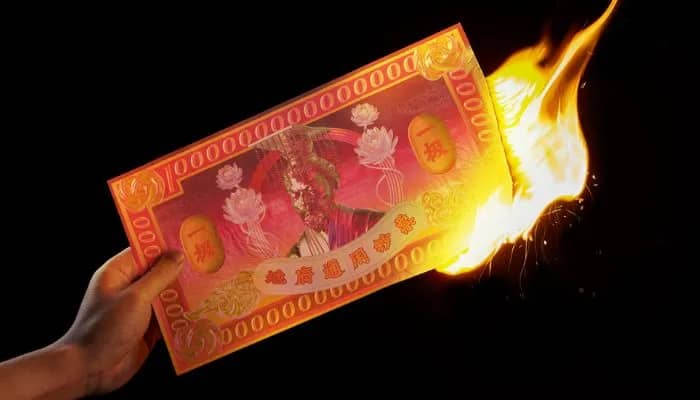Singapore – Startup Base Genesis has collaborated with creative agency MullenLowe Singapore to reimagine the cultural practice of joss paper burning with the launch of ‘Eco Hell Note’.
Eco Hell Note is a joss paper innovation that burns cleanly without leaving any residue. It is printed on nitrocellulose paper, making it a sustainable product that ensures complete combustion, leading to a cleaner and more sustainable practice.
Launched in time for the Qingming Festival, the innovative product prevents excessive purchasing and burning of joss papers for ancestors by using the largest possible denomination of money in the Chinese language, ‘Yi ji’ (一极) at 48 zeroes, such that a single note represents stacks of hell notes.
Furthermore, it is carefully crafted to reflect the traditional aesthetics of joss paper, featuring auspicious colours such as gold and red, unique serial numbers, and an imperial seal.
Burning the Eco Hell Note does not leave ash residue due to the use of flash paper, which burns completely. The note also has a special coating that creates a stunning visual spectacle when burned.
Eco Hell Note reduces paper waste and offers an environmentally-friendly alternative to burning joss paper while maintaining respect for traditional practices.
Base Genesis is a startup dedicated to revitalising cherished traditions and connecting past wisdom with future aspirations.
Chris Huang, co-founder of Base Genesis, said, “At Base Genesis, our mission is to help our traditions flourish and remain relevant for generations to come, ensuring they not only endure but also contribute positively to the world. We hope that the Eco Hell Note can help more people uphold our traditions that are dear to us in a way that is sustainable, socially responsible, and in keeping with our values of filial piety, giving thanks, and sharing with those in need.”
Shengjin Ang, executive creative director at MullenLowe Singapore, also shared, “We are delighted to work with Base Genesis to produce this new spin on the hell note, reimagining a traditional cultural artefact that has been part of Chinese culture for centuries. We believe this innovation will bring the younger generation into the conversation, helping them to find a balance between continuing cultural customs and practicing a way of life that is important to them.”

